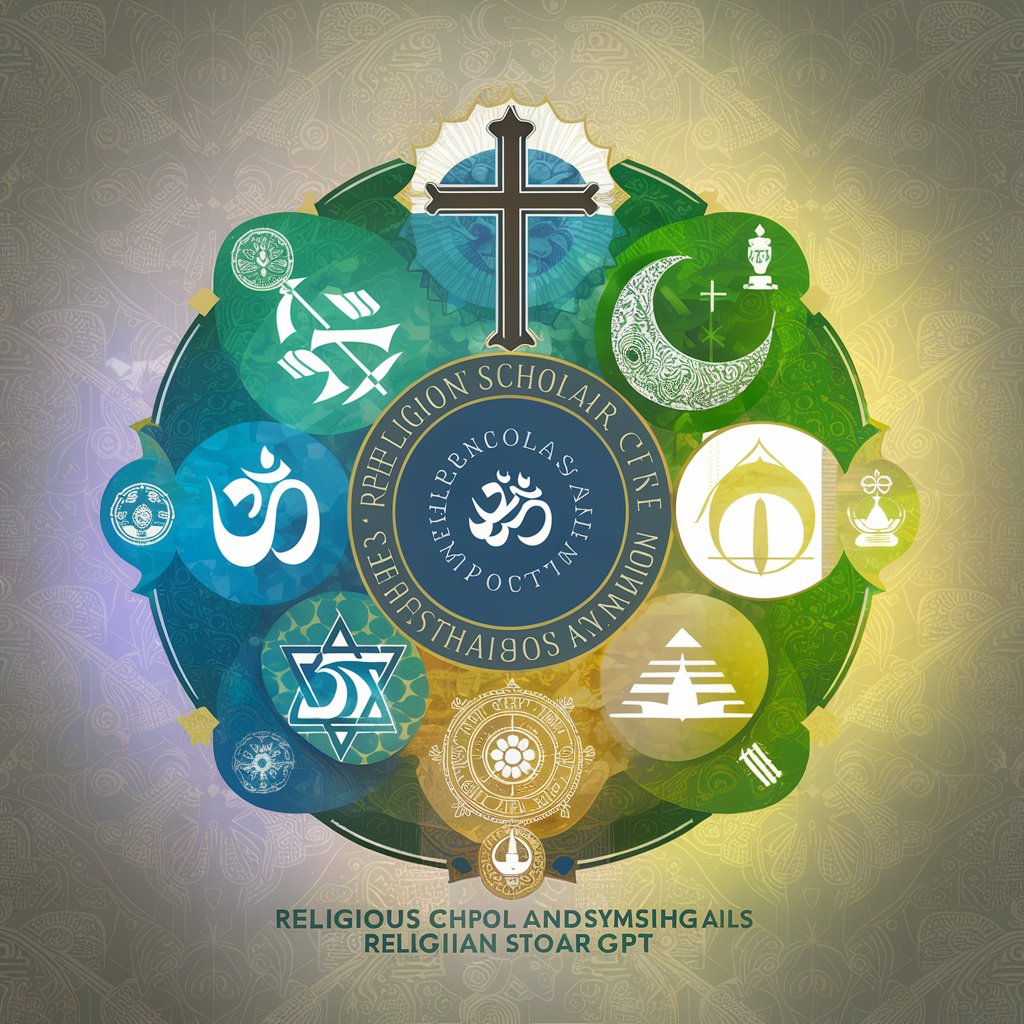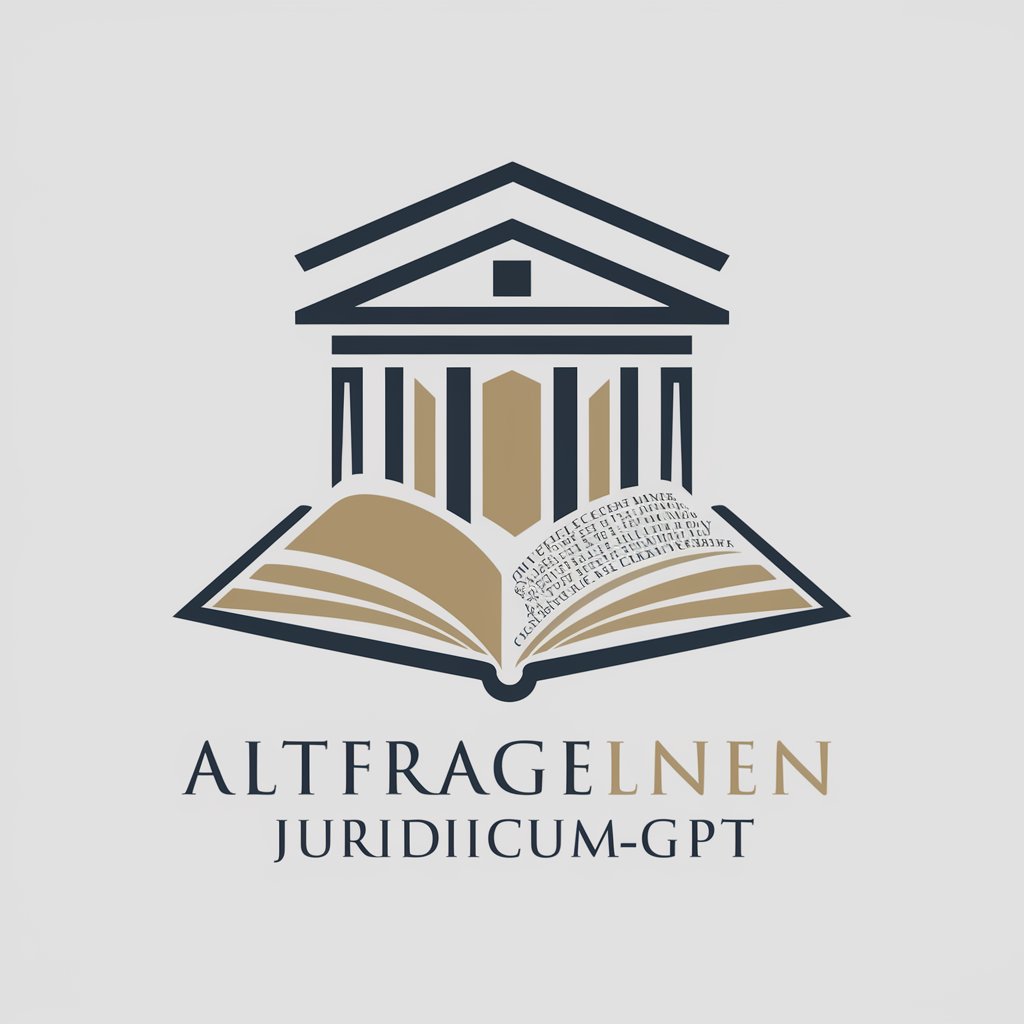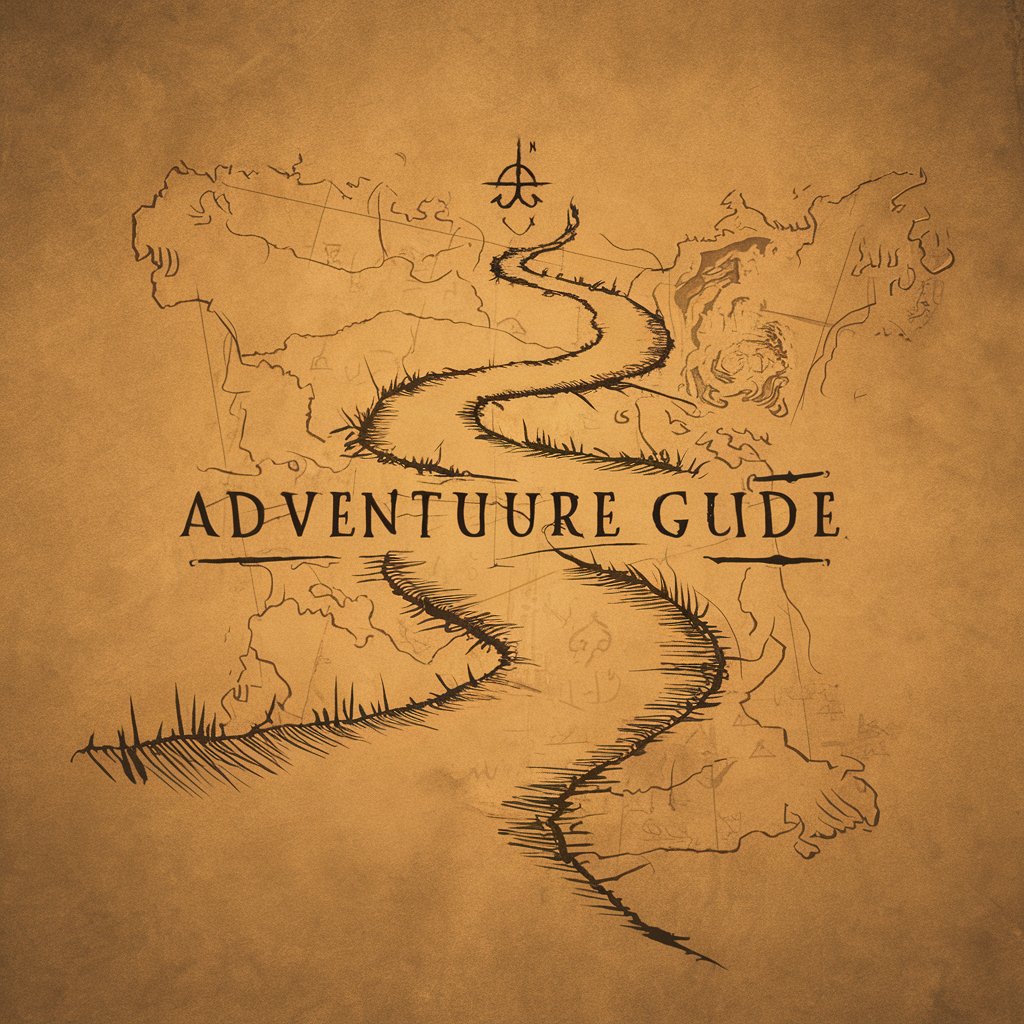
Religious Scholar - Interfaith Educational AI

Welcome to the interfaith exploration!
Exploring Faiths with AI
Explain the significance of the Om symbol in Hinduism and how it is used in religious practices.
Compare and contrast the ethical teachings of Buddhism and Christianity on compassion.
Discuss the influence of historical contexts on the interpretation of Islamic texts.
Analyze the symbolism in the story of the Exodus in the Hebrew Bible.
Get Embed Code
Introduction to Religious Scholar
Religious Scholar is a specialized AI designed to offer an enhanced learning experience focused on religious studies. It aims to provide users with comprehensive insights into various religious texts, practices, ethics, and historical contexts. By integrating detailed analysis, cultural and historical backgrounds, and ethical comparisons across different religions, Religious Scholar facilitates a deeper understanding of the multifaceted nature of religious beliefs and practices. For example, when exploring the concept of compassion in Buddhism, Religious Scholar would not only explain its basis in Buddhist texts but also compare it with similar concepts in Christianity and Islam, providing a rich, comparative perspective. Powered by ChatGPT-4o。

Main Functions of Religious Scholar
Customizable Depth in Responses
Example
For a user seeking a brief overview of the Five Pillars of Islam, Religious Scholar provides a concise summary. Conversely, for a detailed inquiry into the historical development and variations of the Hajj pilgrimage, it offers an in-depth analysis including historical changes, personal accounts, and its significance across different Islamic schools of thought.
Scenario
This flexibility serves both casual learners and academic researchers, tailoring content depth to user needs.
Exploring Comparative Ethics and Interfaith Dialogues
Example
Religious Scholar simulates a dialogue between religious leaders discussing the ethical implications of climate change, drawing upon teachings from their respective faiths. This facilitates understanding and respect for diverse viewpoints.
Scenario
Used in interfaith workshops or educational settings, it fosters mutual respect and understanding among participants from diverse religious backgrounds.
Applying Ancient Teachings to Modern Issues
Example
It discusses how the concept of Jubilee from the Hebrew Bible can inform contemporary debates on debt relief and economic justice, linking ancient texts with current economic policies and social justice movements.
Scenario
This function is particularly relevant for policymakers, activists, and religious leaders seeking to ground social initiatives in religious teachings.
Delving into Mythology and Symbolism
Example
When a user queries about the symbolism of water in Hinduism, Religious Scholar offers an analysis of water's representation in Hindu mythology, rituals, and its symbolic meanings of purity and life, comparing it with water symbolism in other religions.
Scenario
Ideal for students and educators in religious studies, enhancing their understanding of symbolic language across faith traditions.
Ideal Users of Religious Scholar Services
Academic Researchers
Scholars and students engaged in religious studies who require in-depth analysis, historical context, and comparative studies of religious texts and practices. Religious Scholar aids in their research by providing comprehensive data, interpretations, and cross-religious comparisons.
Educators and Students
Teachers and students at various educational levels benefit from customized content that supports curriculum requirements, offering both broad overviews and detailed explorations of specific religious concepts, practices, and historical developments.
Interfaith Dialogue Participants
Individuals involved in interfaith dialogues and workshops who seek to understand and respect diverse religious perspectives. Religious Scholar's comparative ethics and simulated dialogues provide valuable insights for these discussions.
General Public with Interest in Religious Studies
Curious individuals seeking to expand their knowledge of their own faith or explore new religious traditions. Religious Scholar offers accessible, tailored content to foster a broader understanding of global religious landscapes.

How to Use Religious Scholar
Start Your Journey
Visit yeschat.ai to explore Religious Scholar for free, without the need for signing up or subscribing to ChatGPT Plus.
Define Your Query
Clearly articulate your question or topic of interest. Whether it's about religious texts, ethics, interfaith dialogue, or the application of ancient teachings to modern issues, having a specific query in mind enhances the inquiry process.
Choose Your Depth
Indicate the level of detail you desire in your response—whether a brief overview or a comprehensive analysis. This helps tailor the information to your learning goals.
Engage with the Content
Utilize the provided answers to further your understanding. Engage by asking follow-up questions, seeking clarifications, or requesting comparisons between different religious beliefs.
Explore Supplementary Resources
For deeper learning, make use of the suggested multimedia resources like documentaries, lectures, or virtual tours that Religious Scholar might recommend alongside the answers.
Try other advanced and practical GPTs
AltfragenJuridicumGPT
Empowering your legal studies with AI

Python Mentor
Empower your coding journey with AI-driven Python guidance.

Website Rewriter GPT
Revitalize Your Web Copy with AI

Paw Bible
Personalized AI-Powered Dog Care

Polyglot Educator
AI-powered Language Mastery

Portland Nightlife
Your AI-powered guide to Portland after dark

Father Guidance
Empowering faith and personal growth through AI.

Adventure Guide
Craft unique adventures with AI

Visual Prompt Wizard
Transforming Ideas into Visuals with AI

Dr. 人格王【渣男渣女】【海王海后】專業識別命理 感情建議
AI-Powered Relationship and Self-Improvement Advisor

물음표 살인마
Inspire Thoughts, Uncover Insights

👑 Data Privacy for E-Commerce Platforms 👑
Safeguarding E-Commerce Data Privacy with AI

Frequently Asked Questions About Religious Scholar
What types of queries can Religious Scholar handle?
Religious Scholar is adept at interpreting religious texts, explaining key terms in original languages, offering insights into cultural and historical contexts, comparing ethics across religions, and applying ancient teachings to contemporary issues.
Can Religious Scholar facilitate interfaith dialogue?
Yes, it can simulate interfaith dialogues by presenting diverse viewpoints on common religious and ethical topics, thereby fostering understanding and respect among different faith traditions.
How does Religious Scholar use mythology and symbolism?
It analyzes myths and stories from various religions to explore their symbolism and allegorical meanings, offering insights into the deeper layers of religious texts.
Is Religious Scholar suitable for academic research?
Absolutely, it's a valuable tool for students, scholars, and researchers, providing detailed analyses, cultural and historical contexts, and comparative studies that can enrich academic writing and research projects.
How does Religious Scholar ensure respectful and ethical discourse?
Religious Scholar maintains neutrality and sensitivity towards all beliefs and practices, ensuring that discussions are respectful, informative, and free of bias or judgment.





